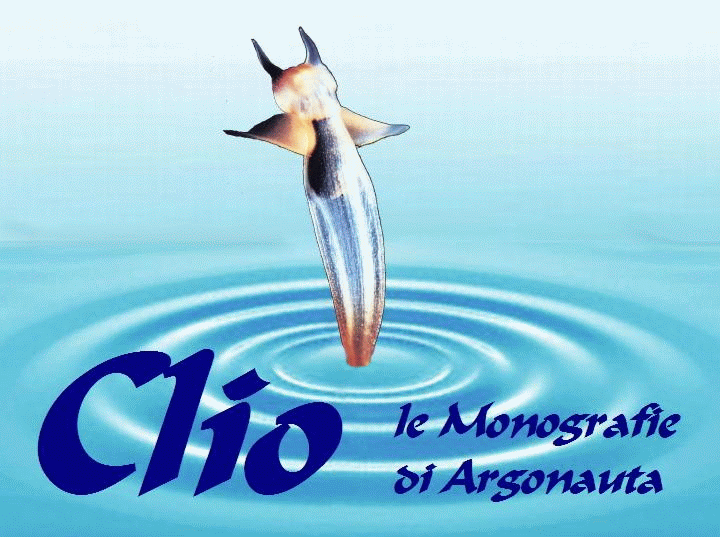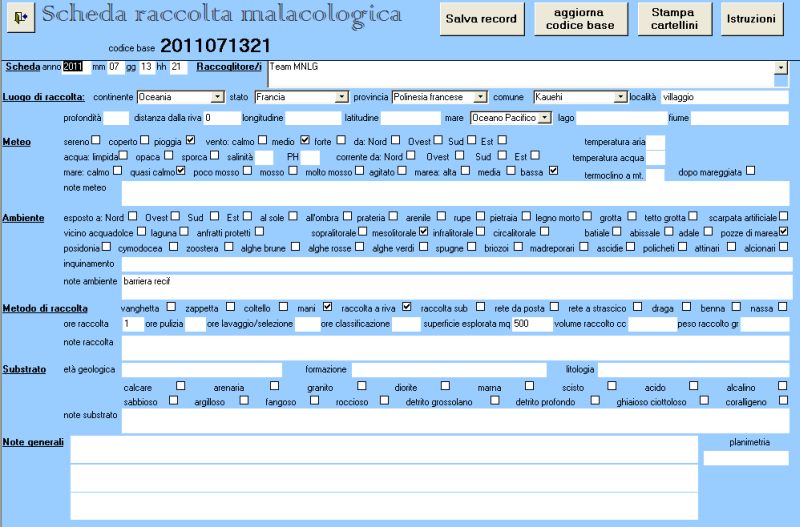
Clio supplemento a Argonauta n. 7-12 2011
 |
 |
Raccogliere con metodo
Il primo e più normale impulso de "raccoglitore" è quello di mettere nel suo paniere tutto quel che si può prima che arrivi l'ora di andar via. Se sei interessato a capire il perchè quel detrito e quelle specie sono li, da dove vengono, come vivono, ecc., quel che puoi fare è registrare tutte le informazioni disponibili in quel momento. Questo fa la differenza tra il raccoglitore e il ricercatore. Alcuni di noi hanno disegnato una scheda molto complessa per raccogliere rapidamente quanti più dati possibili: dobbiamo però confessare che, per pigrizia o mancanza di tempo, spesso la abbiamo compilata con una certa superficialità e ogni volta, negli anni successivi, ci siamo pentiti di non avere fatto bene il nostro lavoro. Nel tempo si scoprono collegamenti, prima sconosciuti, che portano alla spiegazione di certi eventi. Il lavoro del ricercatore è come quello del commissario che raccoglie dati e fatti per poi fornirli al giudice che può trarne le giuste conclusioni. Un esempio: un giorno sono stati effettuati dei "ripascimenti": sono stati dragati milioni di metri cubi di sabbia in profondità e poi riversati sulle spiagge per colmare quanto portato via dalle mareggiate. Non avendo raccolto abbastanza dati su una certa spiaggia, ora non siamo in grado di capire quali sono le specie locali e quali quelle provenienti da queste cave marine. |
Collecting with method
The first and most normal impulse of "collector" is to put in his basket all that he can before the time comes to leave. If you are interested in understanding why the debris and those species are there, where they come from, how they live, etc.., What you can do is record all the information available at that time. This makes the difference between the collector and the researcher. Some of us have drawn a very complex card to collect as much data as quickly as possible: however, we must confess that, out of laziness or lack of time, we often filled with a certain superficiality and each time, in later years, we regret not to have done our job. Over time you discover connections, previously unknown, that lead to the explanation of certain events. The work of the researcher is like that of the Commissioner that collects data and facts and then provide it to the judge who can draw the right conclusions. An example: one day they were made "nourishment": were dredged million cubic meters of sand at depth and then dumped on the beaches to close as carried away by storm surges. Not having enough data collected on some beach, now we are not able to understand which species are local and which ones from these marine caves. |

